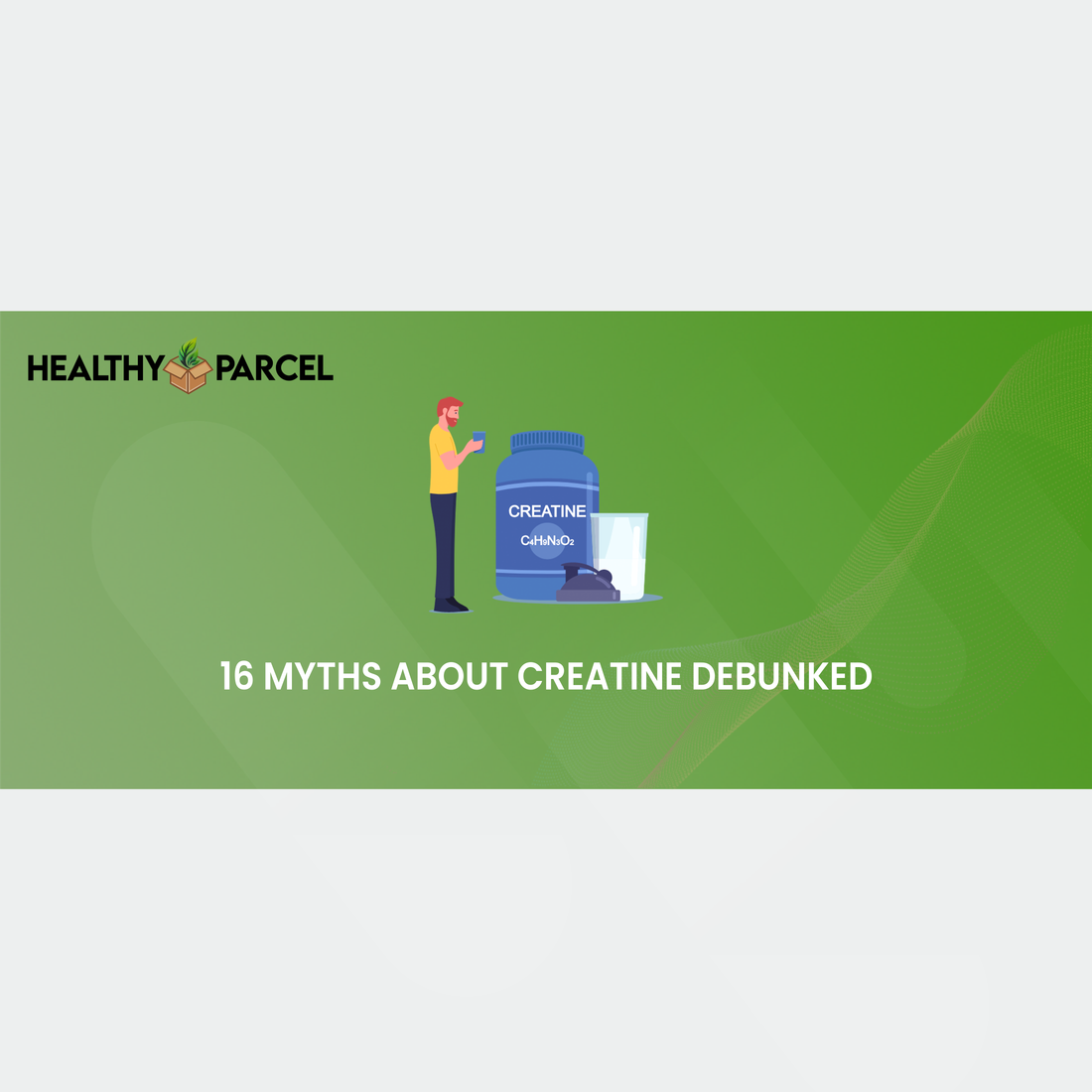Creatine is a widely-used supplement among athletes and bodybuilders for enhancing strength, reducing fatigue, and speeding up recovery during high-intensity workouts. Despite its extensive research in sports nutrition, many myths about creatine persist. Let's debunk some of these common misconceptions.
Myth: Creatine is Like an Anabolic Steroid

Creatine is not similar to anabolic steroids. It’s a compound derived from amino acids, naturally present in the body and found in foods like meat and fish. About 95% of the body’s creatine is stored in muscles, with the rest in the brain, liver, and kidneys. Creatine helps supply energy to cells, particularly muscle cells, by increasing the production of adenosine triphosphate (ATP), which can enhance workout performance.
Myth: You Can Build Muscle Mass with Creatine Without Exercising

Research shows that creatine can improve strength in individuals with muscular dystrophy even without exercise. However, for healthy individuals, creatine needs to be combined with resistance training to effectively build muscle mass.
Myth: Take Creatine Before a Long-Distance Race to Improve Speed

Creatine does not enhance performance in long-distance running. While it’s beneficial for high-intensity activities, it has little effect on endurance exercises. Runners can benefit from creatine by incorporating high-intensity training into their routines to improve core strength and endurance.
Myth: Creatine Causes Fat Gain

Initial weight gain from creatine is due to increased water content in muscles, not fat gain. Over time, continued weight gain is usually from muscle growth rather than fat.
Myth: Creatine Causes Excess Water Retention

Some believe creatine makes muscles look "soft" due to water retention under the skin. However, most creatine is stored in muscles, not under the skin. Any "soft" appearance is likely due to low-quality creatine products with excess sodium, not creatine itself.
Myth: Creatine Causes Cramping and Dehydration

Contrary to belief, creatine does not cause cramping or dehydration. In fact, studies suggest it may help reduce these risks. Staying hydrated is essential, but excessive water intake isn’t necessary.
Myth: Stopping Creatine Leads to Muscle Loss

Muscle size may decrease after stopping creatine, but maintaining proper nutrition and resistance training can help retain strength and muscle mass.
Myth: No Need for Creatine Supplements Since It’s Found in Food

While creatine is present in certain foods, you’d need to consume large amounts to match the benefits of a creatine supplement.
Myth: Newer Forms of Creatine are Superior to Creatine Monohydrate

Over 95% of research on creatine’s safety and effectiveness is based on creatine monohydrate. While other forms exist, they lack the extensive research backing creatine monohydrate.
Myth: Creatine Must Be Taken with Sugar for Effective Absorption

Muscles can absorb creatine effectively without high amounts of sugar. Although insulin can enhance creatine uptake, it requires very high concentrations, which may not be practical or beneficial.
Myth: Creatine is Only for Male Athletes

Creatine benefits are not limited to male athletes. It is suitable for women and older adults as well.
Myth: Creatine Requires a Loading Phase

A common loading phase involves taking a high dose for a short period, followed by a maintenance dose. However, taking a smaller daily dose over a longer period can be just as effective.
Myth: Creatine Needs to Be Cycled

Initially, cycling creatine was recommended due to safety concerns, but extensive research has shown that it’s safe for long-term use without cycling.
Myth: Creatine Increases Risk of Rhabdomyolysis

Although creatine supplementation slightly raises creatine kinase levels, it does not lead to the high levels associated with rhabdomyolysis.
Myth: Creatine Upsets the Stomach

Normal doses of creatine rarely cause digestive issues. However, excessive doses can lead to gastrointestinal discomfort. It’s best to stick to the recommended dose of 3-5 grams per day.
Myth: Creatine Damages the Kidneys

Creatine may increase creatinine levels in the blood, but this does not indicate kidney damage. Healthy kidneys can handle this increase without adverse effects. People with pre-existing kidney conditions should consult a healthcare provider before taking creatine.
Before starting any new supplement, including creatine, it’s important to consult with a healthcare provider, especially if you have medical conditions or are taking other medications.

